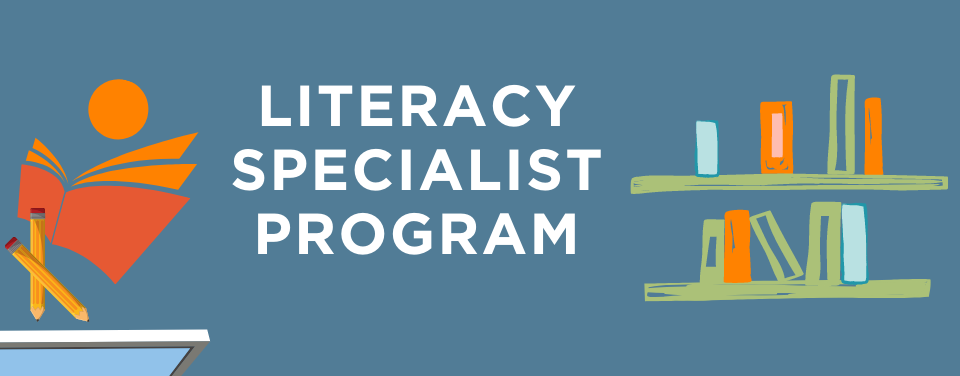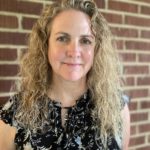Literacy Specialist Program for Educators and Administrators
The Literacy Specialist PreK to 12 (LSP) program went through a complete program revision to align its objectives and standards to the International Literacy Association and to the state of Tennessee standards and policies. Our revised program was approved by the Tennessee Department of Education and currently enrolls candidates for Fall, 2021.
Literacy is a core value embedded in societies and relates to academic performance, professional career and citizenship. At the University of Tennessee, Knoxville (UT) we support educators who strive to make a difference in their learners’ lives and future careers. Thus, we work with educators and administrators to enhance their understanding on how reading and writing develop, and on ways to support learners from the initial stages of reading, spelling, writing, and thinking acquisition to later stages of critical thinking through technology, writing, while promoting self-regulation, motivation, and a growth mindset.
| Literacy Specialist Courses | Credit Hours | Artifacts |
| REED 529- Literacy Assessment & Instruction with Emergent Learners (Pre-K-2) | 3 | PreK to 2 Case study |
| REED 537 – Literacy Assessment & Instruction with Elementary Learners (3-5) | 3 | 3 to 5 Case study |
| REED 540 – Literacy Assessment & Instruction with Adolescent Learners (6-12) | 3 | Unit Plan |
| REED 605-Organization and Administration of Reading Programs | 3 | Coaching Self-Analysis |
| SPED 516 – Effective Instruction for Students with Learning Disabilities and Other High Incidence Disabilities | 3 | Instructional Focused Lessons |
- Zoi Philippakos
- Pamela Bazis
- Sherry Bell
- Stergios Botzakis
- Samantha Cooper
- Miranda Davis
- Deborah Reed
Zoi A. Traga Philippakos, associate professor and instructional team lead
Pamela Bazis, assistant professor
Sherry Mee Bell, professor and CEHHS Director of Literacy Initiatives
Samantha Cooper, clinical assistant professor
Miranda Davis, lecturer
Deborah Reed, professor, senior literacy scholar, and Director of the Tennessee Reading Research Center
LSP is aligned to the national standards provided by the International Literacy Association for the preparation of Literacy Professionals (2017) as well as the Tennessee state literacy standards in response to (Individuals with Disabilities Education Act (IDEA) law embodied by Response to Intervention.
Graduate certificate programs provide focused areas of study for the following types of students:
- students who are pursuing other academic programs at the master’s or doctoral level
- students who have already earned a master’s degree or a doctorate
- students who are post-baccalaureate and enrolled solely in graduate certificate program
Admissions Criteria:
Candidates should
- have at least two years of teaching experience,
- have a minimum GPA of 3.0,
- have a specific, stated professional interest in literacy education, and in receiving the literacy education certificate, and
- have successfully completed REED 530 or an equivalent reading methods course.
Graduation:
Prior to recommendation for the Literacy Specialist license, each candidate will undergo a summative review of data from all five courses, along with ProCADS criteria, and will need to have passed the appropriate Praxis exam (#5301).
Current Graduates and Their Stories:
- Amanda Rigell
- Nancy Mawhinney
- Tammy Winstead
- Bridgette Gardner Henry
Amanda-Rigell
Current Program: Literacy Studies | Terminal Degree: PhD (expected Spring 2022) | Specialization: Literacy Education | Year of completion: 2022 | Thesis title: N/A
Current position: Theory and Practice in Teacher Education (TPTE) doctoral student and graduate teaching associate
Previous education: master’s in teacher education with a specialization in reading education (non-thesis option), which was completed in Fall 2016
Recent awards/recognitions:
- Shipley-Swann fellowship (University of Tennessee, Knoxville (UT)) 2020-2021
- Chancellor’s citation for extraordinary professional promise (UT) 2020
- Chancellor’s award for excellence in graduate student teaching (UT) 2020
- Oscar Roy Ashley fellowship (UT) 2019-2020
- Wallace & Katie Dean graduate fellowship (UT) 2018-2019
Why did you choose to pursue your Master’s in Reading at UT?
After many years of feeling that I was almost where I wanted to be in my teaching, I had to be honest with myself and admit that I didn’t know enough about helping my middle grades students improve in reading and writing. I was able to provide them superficial tools I learned about in personal development (PD) sessions, but I didn’t have a strong enough theoretical background in literacy to teach as responsively as I needed to.
How did the course of study in reading education at the UT support you in your current role?
As part of my responsibilities as a graduate teaching associate, I teach REED 430, a course about elementary-grades reading instruction. The new understandings I gained through the master’s program have allowed me to support preservice teachers in growing their understanding of literacy instruction as I continue to refine my own.
Why should others consider attending the reading specialist courses and complete the certificate at UT?
I returned to the middle grades classroom during the final semester of my master’s coursework. That academic year and the following one, I saw my students’ reading and writing scores improve more than I had in previous years of teaching. I attribute the improvement in student growth directly to the understandings I gained during the master’s program about responsive instruction, the “leading edge” of students’ learning, and the fundamental processes of literacy.
Andrea Mitchell:
UT had all the classes to achieve my certification as a reading specialist and the course of study added additional tools to my “tool box” of strategies and approaches. I completed my certification late in my teaching career, and it gave me new and different strategies to use with students who have a difficult time reading.
Teachers should consider attending the literacy specialists courses and complete their certification at UT because the professors care and are very supportive.
Nancy Mawhinney
Specialization: Reading Specialist, PreK-12 endorsement | Year of completion: Spring 2018 | Thesis title: N/A
Current position: Reading Specialist
Recent awards/recognitions:
Presenter at the 2016 SCORE (State Collaborative on Reforming Education) Summit Conference in Nashville, TN
2015-2016 Teacher of the Year for Andersonville Elementary School
Why did you choose to pursue your Master’s in Reading at UT?
Before attending UT, I had already obtained my master’s degree in educational theory and practice. However, I completed my reading specialist endorsement through UT. At the time, I had recently been hired as a reading specialist but needed to complete my endorsement. I contacted UT and applied for a curriculum review. It was determined I needed to complete two courses before taking the Praxis Reading Specialist exam. These courses included REED 605: Organizing and Administering Reading Programs, and REED 540: Teaching Struggling Adolescent Readers. The education program at UT has a good reputation, and I knew colleagues that completed coursework on campus. I also knew that I wanted to complete my coursework in person instead of online and that the classes would need to be offered in the evenings after work. Due to this, the campus needed to be within driving distance of my place of work. UT fulfilled all these requirements and I am pleased that I pursed and completed my reading specialist endorsement through UT.
A positive memory (or more):
My most memorable experience during my time at UT was my participation in the course REED 605: Organizing and Administering Reading Programs. I appreciated and valued that the time spent on the assignments were relevant and applicable to my daily work as an educator. The coursework allowed me to bridge the gap from theory to practice on a weekly basis in my own classroom and school setting. The climate and culture created in the classroom were equally memorable. I looked forward to the class each week and found myself invigorated during and after each class session. The experience felt like a group of colleagues meeting weekly to discuss best practices and share experiences. The knowledge and networking I have gained from this experience has lasted well beyond the semester in which I took the course.
How did the course of study in reading education at UT supported you in your current role?
My current teaching role is as a reading specialist at an elementary school. The courses I took to complete my reading specialist endorsement deepened my pedagogy in literacy. The additional knowledge I have gained through my coursework at UT has supported my reading instruction with students as well as working with adult learners in the role of a literacy coach. As an educator, I truly believe the value and necessity of being a lifelong learner. The courses I have completed at UT have supported my journey of continuously improving my effectiveness as an instructor whether it be with my students or collaborating with my fellow staff members.
Why should others consider attending the reading specialist courses and complete the certificate at UT?
The courses I took at UT to complete my reading specialist endorsement were held in the evenings. I appreciated the convenience of being able to work full time while also attending classes. I found that the two classes I took, REED 540 and REED 605, were interesting and relevant to my daily instruction. The instructors were relatable, approachable, professional, and valued student participation and collaboration in their classrooms. The time I invested in attending these courses and completing coursework was impactful and meaningful.
Tammy Winstead
Program: Reading Education/ Teacher Education | Terminal Degree: Master of Science Specialization: Literacy Education | Year of completion: 2019 | Thesis title: Non-thesis option
Current position: N/A
Why did you choose to pursue your Master’s in Reading at UT?
My goal was to take the six required courses for a reading specialist endorsement. The reason I decided to seek a master’s degree was twofold: first, I realized there were only five more classes to obtain a masters and second, I already had a masters, and adding another one could, eventually, increase my pay— providing I was hired in a certified teaching position. The University of Tennessee was where I received my master’s degree nearly fifteen years prior to taking REED courses, so I had great confidence in its reputation. Another reason I chose UT’s reading program was due to a recommendation from a colleague, Lynn Tschaplinski, who had received her reading specialist endorsement from UT.
A positive memory (or more):
First, all the professors I studied under were absolutely fantastic. From the perfect student- teacher ratio to their individual teaching pedagogy, they went above and beyond my expectations. For me, each class brought its own unique perspective to reading education. With every lens, the focus provided individual professors the liberty to expand on his/her given topic of study. Never before have I experienced classes that involved so many hands-on activities that were relevant to the assigned readings. Not only were these activities practiced directly after reading about them, but they were a continuous spiral—resurfacing and blending when discussed in later sessions. I particularly appreciated that student application and participation was calculated in each course’s explicit rubric. It was pretty amazing that my professors all managed to connect with their students’ strengths and helped to make them feel part of the literacy circle.
How did the course of study in reading education at UT supported you in your current role?
For the last couple of years (2018-2020), I had the wonderful privilege of being a reading interventionist. I accepted this position the year before I completed my masters in reading education, so I was thrilled to be asked to serve in this role. For the first couple of months in this new position, I was given autonomy to insert the reading programs I felt necessary. The research from my graduate classes matched my pedagogy toward teaching reading, which matched the program I felt most comfortable using.
Why should others consider attending the reading specialist courses and complete the certificate at UT?
I won’t sugarcoat it – the classes were demanding and are part of the reason I feel so pleased to have accomplished this goal. When you love learning, every aspect of the research and topics that are taught, becomes an enjoyable and satisfying journey. The trajectory of my professional career has not been a traditional one. Before I began taking REED courses, I barely had the minimum requirement of teaching in the classroom for three years, and it had been 25 years since I last took a teacher’s exam. So, I was pleased to have passed on the reading specialist praxis on the first attempt, whew! Small class sizes paired with extraordinary educators made my reading education experiences simply like no other and worth every effort put forth into this process. My professors created a learning environment that not only engaged students but constantly challenged them.
Bridgette Gardner Henry
Terminal Degree: EdS | Specialization: Special Education/Reading Specialist | Year of completion: Dec of 2019
Current position: SPED Teacher
Why did you choose to pursue your master’s in reading at UT?
I chose UT for an EdS in special education & literacy because I wanted a program that focused on both literacy and special education populations. UT worked to make this blended concentration possible for me.
Early on in my career I realized that many of my students struggle with reading skills that I either did not know how to teach or did not feel comfortable teaching. Many students need intensive reading support, even at the high school level, that middle and high school teachers are not traditionally trained to provide. My goal was to expose myself to resources, methods, and experiences in teaching literacy to younger populations so that I could translate them to the population in my classroom.
How did the course of study in reading education at UT supported you in your current role?
I have been able to shift some of my focus to elementary-level reading skills. I have found that older students are now ready to learn what they did not learn in earlier grades. It may be that they were being taught something they were not ready to learn developmentally, or they may have missed it due to reasons beyond their control. Regardless, adding fundamental skills to my curriculum has given a small but very deserving population access to information they need to be successful.
Why should others consider attending the reading specialist courses and complete the certificate at UT?
Even if you do not work as a reading specialist or at the elementary level, you are likely to encounter a student who cannot write a sentence. You are likely to have a student that spells everything phonetically because they were not taught spelling patterns in a way that worked for them. You will probably have many a student who cannot get their ideas onto paper because by the time they figure out which letters to write for a single word, they have lost the idea they wanted to write.
You should take reading courses if the course you will teach involve reading.
You should take reading courses if you want to understand WHY students struggle and to learn how to help them (because some students will struggle, and if you are a teacher for the right reasons, you will want to help them).
Literacy education faculty host a monthly free virtual literacy series (#UTLitSeries)! The series is held on the 2nd Tuesday of every month from 6:00pm – 7:00pm EST. Be sure to check out our social media pages for more information on topics and faculty hosts.
All sessions will be offered via Zoom, and are open to educators, parents, and policymakers.
The Zoom link for all sessions is: https://tennessee.zoom.us/j/95788761169
Be sure to visit our YouTube channel to catch up on all of our literacy professional development series videos!
Contact Information
If you have questions about the program or the course of study, please contact:
Zoi A. Traga Philippakos at zphilipp@utk.edu
A222 Jane & David Bailey Education Complex
1126 Volunteer Boulevard
Knoxville, TN 37996
Phone: 865-974-1920











